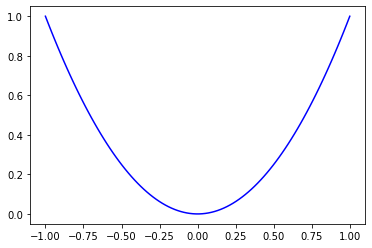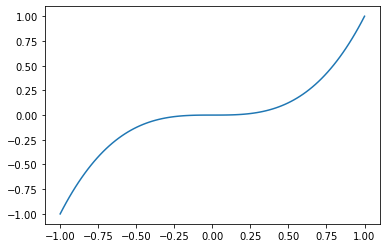Functions
Contents
Functions¶
A function takes some number of inputs, and returns some number of outputs. Recall the keywords def, and return
import numpy as np
# function with no inputs
def random_float():
return np.random.rand()
print(random_float())
# function with 1 input
def plus1(x):
return x + 1
print(plus1(2))
# function with 2 outputs
def plus_times(a, b):
return a + b, a * b
print(plus_times(2,3))
0.3064341421146527
3
(5, 6)
You can look up a function call signature and documentation with help()
help(plus_times)
Help on function plus_times in module __main__:
plus_times(a, b)
# function with 2 outputs
You can also use ? in ipython
?plus_times
If we want to provide a docstring, we can do so in the function declaration
# function with 2 outputs
def plus_times(a, b):
"""
returns a + b, a * b
"""
return a + b, a * b
?plus_times
Keyword Arguments¶
You can provide keyword arguments by setting a default value
def kw_example(a, b=5, c=1):
"""
returns a + b + c
"""
return a + b + c
print(kw_example(3))
print(kw_example(3, b=4))
print(kw_example(3, c=2, b=10))
9
8
15
?kw_example
keyword arguments must come after regular arguments
def kw_example(b=5, a):
return a + b
File "<ipython-input-8-d4ea7ae5bf83>", line 1
def kw_example(b=5, a):
^
SyntaxError: non-default argument follows default argument
Unpacking¶
In Python, it is common to see function calls of the form
def myfun(*args, **kwargs):
"""
Function that prints arguments and keyword arguments
"""
print(args)
print(kwargs)
return
args is a tuple containing the arguments
kwargs is a dict containing keyword arguments
myfun(1,2, c=3, dog='cat')
(1, 2)
{'c': 3, 'dog': 'cat'}
You can also unpack containers in other contexts
a = [1,2,3]
print("unpacked list:")
myfun(*a)
print("list:")
myfun(a)
unpacked list:
(1, 2, 3)
{}
list:
([1, 2, 3],)
{}
This is very useful for passing along arguments to other functions without having to even know what the possibilities are.
import matplotlib.pyplot as plt
def plot_f(f, x, **kwargs):
"""
plots f(x)
passes keyword arguments to plt.plot()
"""
y = f(x)
return plt.plot(x, y, **kwargs)
def f(x):
return x**2
x = np.linspace(-1,1,100)
plot_f(f, x, color='b')
plt.show()

A good way to extract keyword arguments from kwargs is to use the get method for Python dictionaries
dict.get?
def myfun(*args, **kwargs):
"""
extract the "message" keyword
"""
m = kwargs.get("message", "hello")
print(m)
return m
myfun()
myfun(message="goodbye")
hello
goodbye
'goodbye'
Helper Functions¶
You can define helper functions inside the definition of a function
def alternate(x):
"""
returns -x if x is odd, x if x is even
"""
def is_odd(x):
"""
returns true if x is odd
"""
return x % 2 == 1 # % is mod operator
# we now return to the function alternate
if is_odd(x):
return -x
else:
return x
for i in range(-5,5):
print("{:+d}".format(alternate(i)))
+5
-4
+3
-2
+1
+0
-1
+2
-3
+4
Lambda Functions¶
A Lambda Function is an anonymous function, meaning you don’t give it a name e.g. by declaring it in a def block.
f = lambda x : x*x
f(2)
4
lambda functions (and the lambda calculus) play an important role in the theory of computing. They can be found in a many languages other than Python.
The semantics of a lambda function are very similar to a function declared using def:
lambda *args : outputs
# here's the plus_times function we defined earlier
(lambda x, y : (x + y, x * y))(3,2)
(5, 6)
# using a lambda function in our plotting function
plot_f(lambda x: x**3, np.linspace(-1,1,100))
plt.show()

Exercises¶
Define a lambda function that acts as the identity on input arguments
## your code here
I = lambda *args : args
Define a function that plots a 2-dimensionsional function using
plt.imshow. Pass along keyword arguments to theimshowfunction
# your code here
Define a function that computes the sum of its arguments
# your code here
def sumfun(*args):
return sum(args)
sumfun(1,2,3)
6